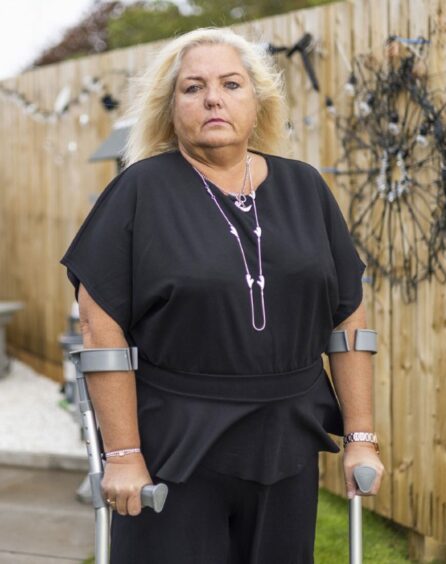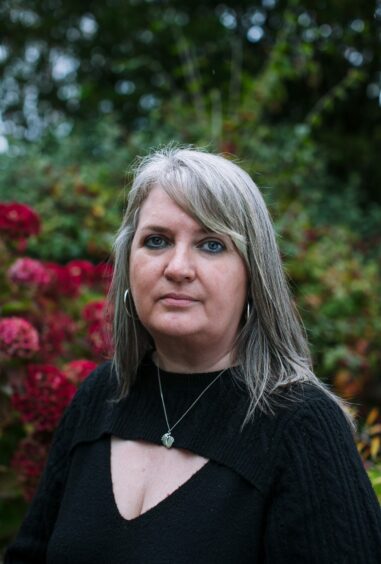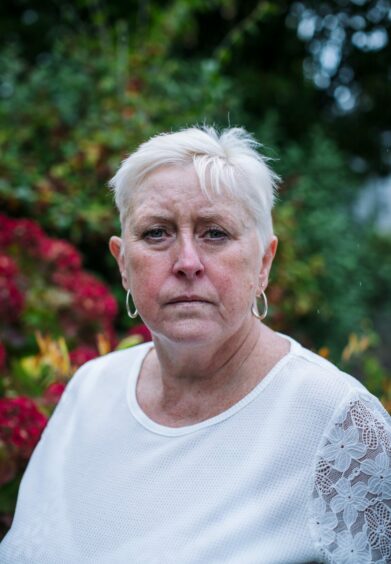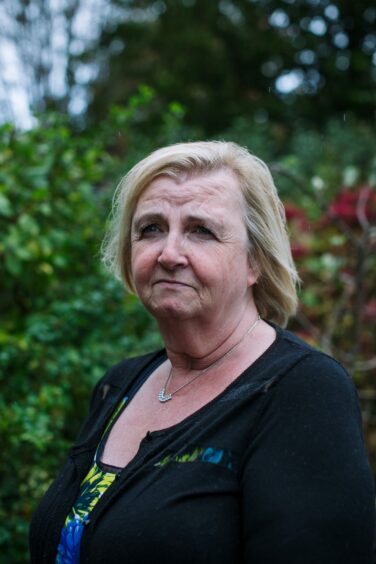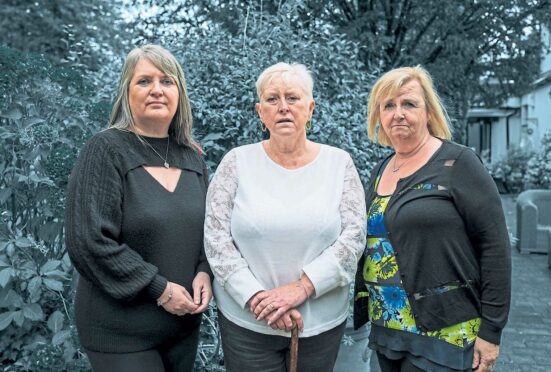
Not a single NHS Scotland patient has yet been sent to a renowned mesh removal surgeon in the United States despite ministers’ repeated promises.
After years of torturous negotiations, when Scots surgeons were accused of trying to block Dr Dionysios Veronikis from operating on women crippled by the plastic implants, Health Secretary Humza Yousaf announced a contract had finally been signed in July.
However, NHS Scotland has yet to send a patient to Veronikis, one of the world’s leading specialists in removal of the mesh used to treat prolapse and incontinence, as women who have suffered life-changing injuries wait more than a year to be assessed at Scotland’s Complex Mesh Surgical Service.
So far, only those able to pay up to £20,000 have travelled to the US, almost five years since the St Louis-based surgeon first offered to come to Scotland free of charge to help women. After years of delays, including allegations in parliament that NHS surgeons were involved in a professional conspiracy to prevent Veronikis coming here in case it exposed a legacy of botched removals, the Scottish Government sent him a contract to carry out removals on Scots patients in May.
It then took another three months for it to be announced but now potential patients wanting to travel to America must still face a panel of Scottish surgeons, some of whom implanted the mesh then failed to remove it while insisting it helped far more women than the thousands injured around the world.
It is currently taking more than a year to be assessed. Julie Barr, 54, from Irvine, was referred to the Glasgow-based centre last November. She was told just five days ago that she will be seen on December 14 – a wait of 56 weeks, despite her consultant describing her case as urgent.
Barr, who was fitted with mesh to treat prolapse in 2010 when she was just 41, said: “My consultant wrote on November 11, 2021 to the Complex Mesh Surgical Service asking for an urgent appointment for a referral to have my mesh removed because I’m in so much pain and distress. I have been waiting all this time for an appointment, and heard only last Wednesday that I would be seen on December 14.”
She had been told a removal in Scotland gone well but her pain and mobility worsened: “I’m now on two walking sticks instead of one. I eventually was given a set of photographs which were seen by my own consultant, and they proved that only seven centimetres of the 22-centimetre implant had actually been removed.
“Seeing the actual photographic proof left me feeling lied to and let down.
“My own NHS surgeon has already said I meet all the requirements to have a proper full removal, I don’t understand why I have to see a medical team that I no longer trust to refer me to the surgeon who has the experience and credentials to carry out the full removal I should have had seven years ago.”
She said the botched removal not only left her in further pain, it also meant she was not able to nurse her dying husband when he developed prostrate cancer.
She said: “Not only has mesh robbed me of my own health, the last couple of years have been a nightmare as I was unable to care for my husband, James.
“We had to have teams of carers in because I could no longer manage on my own. I lost James in July, at the age of only 54.
“The effect on our lives as a couple had been destroyed by mesh. It even robbed my ability to look after him as I wanted to in our last months together.”
Not only has Julie had to wait over a year to get an appointment, she is one of hundreds of Scottish women given a mesh implant made by the US-based manufacturer American Medical Systems which has now gone bankrupt, leaving victims here with no chance of making a claim.
She said: “I know some of the women who got a settlement from Johnson & Johnson, who made mesh, and used that to fund their own journey to the US to see Dr Veronikis.
“But there are lots of other victims like myself who have been left with no opportunity to do that, which is why I am so devastated to have been forced to wait this long for the medical intervention I so desperately need.”
Other women have been given letters insisting that Covid has played a factor in the long waiting times to be seen at the mesh centre.
Mesh-injured Marion McMillan, 74, from Paisley, has been diagnosed with terminal cancer and has been bedridden for months with constant urinary tract infections.
She said: “My GP wrote for an urgent appointment with the centre on May 4. I received a letter on August 23 blaming long waiting times on Covid. I’ve heard nothing since then.”
Health Secretary Humza Yousaf announced the contract with Dr Veronikis in July and welcomed the news on Twitter. Elaine Holmes, co-founder of Scottish Mesh Survivors, said: “He may have had good intentions when he made his announcement, but far too many issues have been poorly thought through and the whole scheme is in danger of failing spectacularly.
“Firstly, there should be no requirement for any mesh-injured woman to be seen by the team at the Scottish centre. Dr Veronikis should be the one reviewing patient notes and making his own decision on whether or not he can operate. That would immediately do away with the 56-week waiting list.
“It’s also unacceptable to expect any injured patient not to have repairs related to mesh or botched implant removal carried out as Dr Veronikis sees fit.
“The reimbursement scheme is appreciated, but there is no flexibility or understanding of the physical pain and psychological difficulties women have suffered.
“The scheme must also appreciate how arduous the journey between Scotland and the US actually is for a mesh-injured patient. These women are going for last-hope surgery. They are not going to Disney for a holiday.”
Claire Daisley, 52, from Greenock, who travelled to see Veronikis after a botched partial removal left her losing her bladder, said: “I went from being suicidal over how I’d been left by mesh surgeons here, to finding a whole new lease of life after Dr Veronikis removed every single piece of mesh and carried out the repairs needed because of the damage done to me.”
NHS Greater Glasgow & Clyde apologised for the delays in assessments but said staff are working hard under great pressure. It said: “In line with agreed National Service Division protocols, those who choose to receive care at an alternative site are issued with a letter informing them that onward referral for treatment, to an independent provider, is being made.”
The Scottish Government said: “NHS National Services Scotland have been working closely with NHS Greater Glasgow & Clyde and local health boards to take forward arrangements for those who wish to travel to the USA and Bristol for surgery.
“Patients requiring removal surgery, and who express a preference for treatment by the independent providers, will be able to go. There is no cap on numbers.
“We are aware, and regret, that patients are experiencing longer than normal delays in accessing NHS care, including at the mesh removal service in Glasgow, as the NHS seeks to recover from the pandemic.”
Waiting in hope and mounting anger
Three mesh-injured women reveal their ordeal and long fight for help and support
Gill Watt
The 52-year-old, from Pollok, Glasgow, was forced to quit her career as an interior designer after being disabled by mesh.
Her condition was so debilitating, she was forced to fund her own trip to the US in February to see Dionysios Veronikis, using settlement money received after a decade-long legal fight with a mesh manufacturer.
Now she faces a fight for reimbursement as the surgeon was forced to carry out at least £6,000 of further repairs blamed on botched partial mesh removal in Scotland.
Watt said: “Like hundreds of other women, I feel I’ve been utterly failed by Scottish surgeons who not only spent years denying mesh was injuring patients, but only removed tiny fragments, leaving us even more damaged than before.
“I’d been initially assured I’d undergone a full removal. Then I was told I’d been left with just tiny parts of mesh.
“Dr Veronikis removed a huge chunk of twisted mesh which was responsible for leaving me needing a wheelchair for years and having my bladder obstructed for 18 months, causing horrific internal damage.
“When Dr Veronikis operated on me, he not only discovered giant cell reaction to foreign material which I’m now terrified could lead to cancer, he found extensive internal damage he believes had been caused by the botched partial removal.
“Dr Veronikis had to carry out around £6,000 of further intricate surgery over and above the actual basic mesh removal because of the mess I’d been left in.
“My legal settlement for being left disabled for life in no way even begins to cover the loss of earnings of pain I’ve suffered.
“Why should I lose a further £6,000 because of the ridiculous restrictions on the reimbursement scheme, which only cover mesh removal.
“It should cover any repair needed. But the rules insist we return to Scotland, undergo a further major operation and anaesthetic, and let the surgeons who caused all our problems operate on us again, which is never going to happen.”
Marian Kenny
Former psychiatric community nurse Kenny, 63, from Clydebank, was forced to give up her NHS role because of the damage from mesh.
After her mesh manufacturer, American Medical Systems, went bankrupt, she won’t be able to get any settlement and is now hoping the government will launch the redress fund called for in the landmark review led by Baroness Cumberlege.
She said: “After already being told I’d had a full removal, only to discover I wasn’t mesh free before being left even more disabled than before, there was no way I would consent to having anyone other than Dr Veronikis touch me.
“He removed almost a foot long piece of mesh. Now I’m dreading have to fight the government to get my operation costs reimbursed after being left disabled for life due to its desire to save £200 on a piece of plastic rather than a bladder repair.”
Norma Roberts
Former NHS theatre nurse Norma Roberts, 58, from Linwood, had to give up her job in 2013 after a partial mesh removal left her in an even worse condition.
She applied to the mesh centre to get referred to a doctor outwith Scotland and received a letter in August discharging her from the service altogether.
Norma said: “I’ve heard nothing since. To be told I’m discharged from the service feels like a I’ve been totally abandoned. What is supposed to happen next?
“Before I’m supposed to go to another surgeon outwith Scotland I need a pre-assessment within three months before I get seen. But discharging me from the service, leaves me in limbo. The whole system is a complete shambles.”

Enjoy the convenience of having The Sunday Post delivered as a digital ePaper straight to your smartphone, tablet or computer.
Subscribe for only £5.49 a month and enjoy all the benefits of the printed paper as a digital replica.
Subscribe